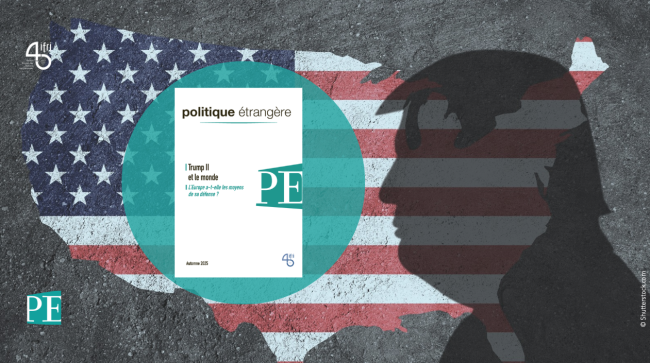From Conservative Nationalists to Tech-Libertarians: Far-Right Ideologies in the Trump 2 Administration

The officials and advisers of the Trump 2 administration represent diverse ideological currents, some of which are relatively new to Washington.

During his first election in November 2016, Donald Trump was surrounded by conservatives concerned with abortion issues and a populist, anti-establishment, anti-immigration voter base. At the time, the most prominent intellectual figure was Steve Bannon, founder and leading voice of the alt-right media outlet Breitbart News.
The 2016 victory drew into the president’s orbit a number of far-right theorists and bloggers who had been exchanging ideas informally since the 2000s. Described both as a tech genius and a “neo-monarchist” Curtis Yarvin popularized the concept of the “red pill” from the film The Matrix (1999) as early as 2007, using it to explain how he had awakened from the “progressive illusion”. Alongside him, Nick Land coined the term “Dark Enlightenment” to describe their neo-reactionary school of thought.
Today, the far-right ideas circulating around the president form a nebulous ecosystem, within which three or four clearly distinct ideological trends coexist—though it remains uncertain whether they will eventually converge or remain in tension.
This editorial is only available in French.

Available in:
Themes and regions
ISBN / ISSN
Share
Related centers and programs
Discover our other research centers and programsFind out more
Discover all our analysesBrazil One Year Away from the October 2026 General Elections
Brazil’s general elections will be held on October 4, 2026, to elect the president, vice-president, members of the National Congress, governors, deputy governors and state legislative assemblies. For the presidential and gubernatorial elections, a second round will be held on October 25 if no candidate obtains a majority of the votes in the first round.
Trump II: The Clash of Ideologies
The second Trump administration brings together a number of very different, even opposing, ideologies: far-right populism, the reactionary Christian right, paleolibertarianism, and technolibertarianism. The most visible measures taken since Donald Trump's return to the White House have been populist in nature, with the president's authority strengthened, checks and balances weakened, a form of identity politics embraced, and economic nationalism implemented.
Water in Mexico: an Emergency that Will Wait
Access to water is already and will become increasingly problematic for Mexican economic actors due to the progressive scarcity of the resource resulting from climate change, a geographical distribution that does not coincide with that of the population or economic activity, and management that has so far been far too lax.
Donald Trump v. the States: the Case of New York
While the disruptive policies of the second Trump administration are being implemented at the federal level and on the international stage, they are also being felt in the federal states and major cities across the country. In the spring of 2025, several cases involving the state and city of New York demonstrate that the president’s attacks on environmental protection, the separation of powers, freedom of speech, etc., are also being carried out at the local level.












